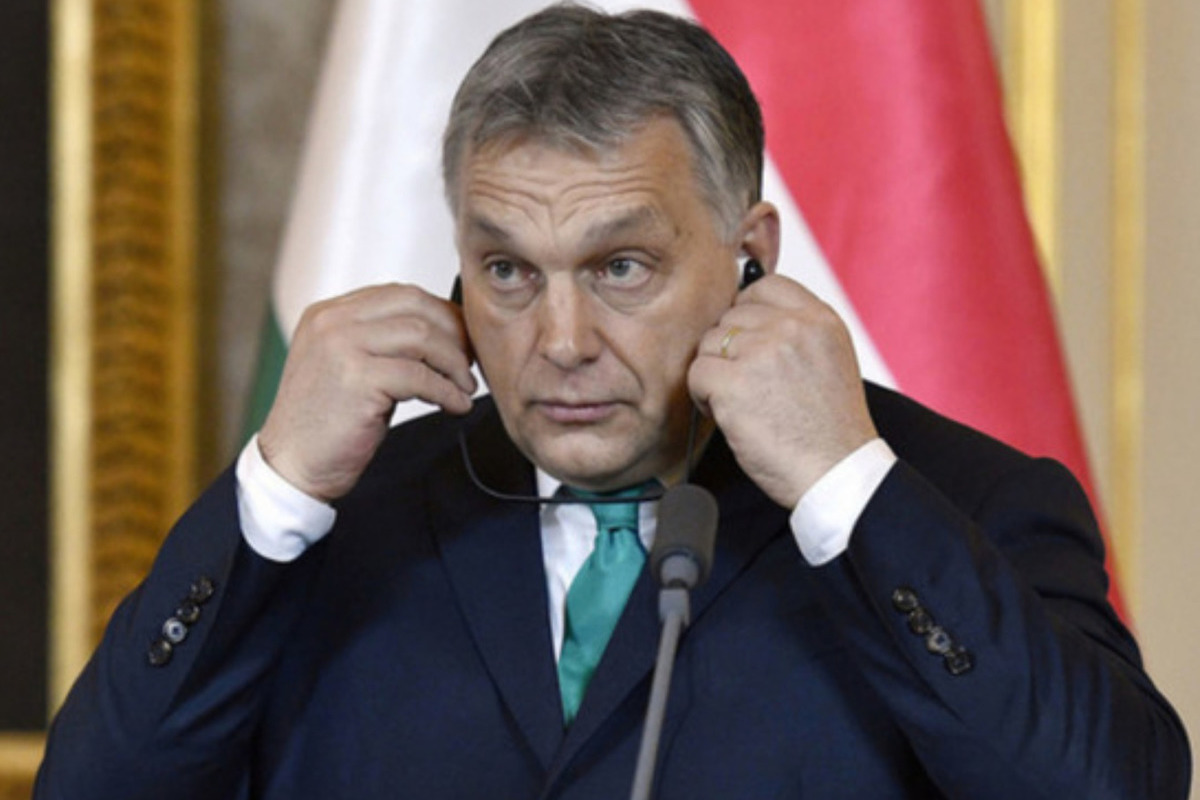The European Union has entered into a clinch with Hungarian Prime Minister Orban over aid to Ukraine
[ad_1]

EU leaders have returned to Brussels for their second showdown in two months with Hungarian President Viktor Orban over his refusal to authorize a new €50 billion aid package for Ukraine, The Guardian writes.
A mixture of frustration and anger reigned in the EU capital as European leaders arrived for dinner on Wednesday night ahead of an emergency summit, with aides bemoaning the Hungarian prime minister’s failure to change his position since December, when he first blocked the funds.
“We really are at a crossroads,” said one EU official.
Diplomats in Brussels stress that Ukraine will not run out of funding for military equipment and ammunition, as it comes from individual member states through the European Peace Fund. But, writes The Guardian, they are concerned about liquidity in the Ukrainian economy and the signal that the absence of European unity will send to Putin.
This EU fund, combined with support from the International Monetary Fund and the European Bank for Reconstruction and Development, has allowed Kiev to pay the salaries of teachers, doctors and soldiers, keep ATMs running and reconstruct buildings where possible over the past two years, The Guardian explains.
Efforts to persuade Orban to budge have redoubled in the past 24 hours as representatives of the other 26 EU states agreed to include a compromise clause in the draft text of the agreement being sought at the budget summit.
In recent days, Hungary has said it would lift its veto, but only if the budget is reviewed every year over the four-year funding period.
On Wednesday morning, ambassadors from member states proposed holding an annual debate rather than a vote on Ukraine’s funding program.
The new draft text of the requested formal agreement provides for an annual review by the European Commission of the implementation of the financial mechanism.
Based on this, “the European Council will hold an annual debate on the implementation of the mechanism with the aim of providing recommendations on the EU approach,” the draft text says.
The minds of leaders are weighed down by the prospect that in the spring Ukraine will run out of money to pay civil servants, teachers, doctors and replenish pension funds.
There are also growing concerns among some member states that Russia, which has stepped up production of ammunition, could win the conflict against Ukraine, The Guardian emphasizes.
EU chief diplomat Josep Borrell said on Wednesday the EU expects to reach just 52% of its target of sending 1 million rounds of ammunition to Ukraine by March this year, according to the latest production data compiled by the commission.
The data was collected after Germany pressured the EU’s External Action Service to try to collect reliable data on each member state’s contributions.
Some sources say this was due to a sense of disappointment in Germany, which has contributed €17 billion so far with a further €7.4 billion committed for 2024, due to other member states, especially the large economies of France, Italy and Spain, did not do enough.
Diplomats confirmed that the survey had been completed, but “some member states did not provide data.” They expect the issue to be raised by German Chancellor Olaf Scholz and Dutch Prime Minister Mark Rutte at Thursday’s summit.
Speaking after a meeting of EU ministers in Brussels, Borrell also said EU countries were planning to train 20,000 more Ukrainian soldiers in addition to the 40,000 already trained.
On Wednesday, five EU prime ministers, including Scholz, issued a stark warning in an open letter that the EU had already failed to deliver on its promises on ammunition.
Scholz, Rutte and the leaders of Denmark, Estonia and the Czech Republic said: “Russia is not waiting for anyone, and we need to act now. If Ukraine loses, the long-term consequences and costs will be much higher for all of us.”
One diplomat said the letter contained a “dual message”: to increase pressure on member states to increase military support, but also to send a signal to Moscow that time is on the EU’s side as it will not waver in its support for Ukraine.
The latest attempt to bring Orban on board at a meeting of EU representatives on Wednesday appears to have failed, The Guardian notes.
One source said the Hungarian representative, who spoke first, told colleagues that Hungary was “working intensively and constructively towards a solution that would be acceptable to everyone within a multi-year financial framework.”
But the official then demanded an annual review followed by a “unanimous vote on funding,” which one diplomat said would “in other words, create an annual veto mechanism.”
This was “a clear red line mentioned by almost all delegations,” the source said.
Officials expressed bewilderment at Hungary’s tough stance. The emergency summit was called just before Christmas after Hungary blocked the package, arguing that additional funds would prolong the conflict in Ukraine.
One senior official said: “We’re really at an impasse. We won’t know what he thinks until we’re in the room.”
Officials have drawn up Plan B, which involves the 26 member states agreeing to allocate money outside the EU budget.
Raising money, a mixture of loans and government contributions, is more complex this way and in some cases requires parliamentary approval. “It’s not the end of the world, but it is a very difficult situation,” the source said.
[ad_2]
Source link








